When an employer decides to legally and compliantly employ an internationally remote employee, one of the first things they need to come to terms with are the employee rights of their country. Here is a guide to employee rights in Ireland.
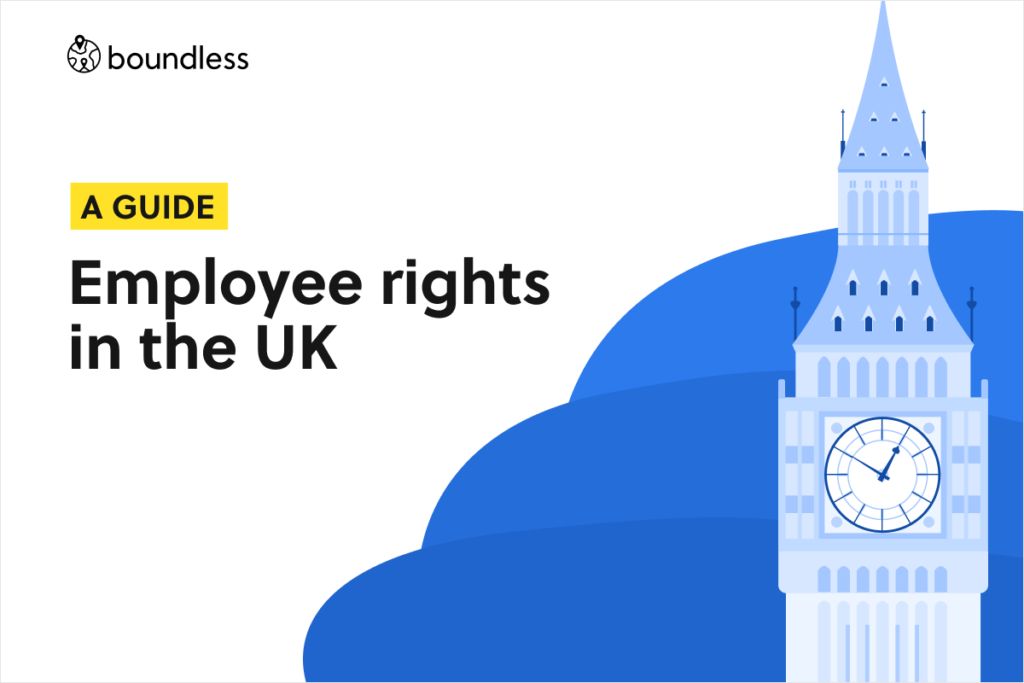
When an employer decides to legally and compliantly employ an internationally remote employee, one of the first things they need to come to terms with are the local employee rights. Below is a guide to employee rights in the UK, a second in a series that aims to help you understand employment legislation around the world (read about employee rights in Australia, Brazil, Canada, Croatia, Ireland, France, Portugal, Poland, Germany, The Netherlands, Lithuania, and New Zealand).
If you employ remote workers based in the United Kingdom, you will need to comply with those rules, regardless of where in the world you are based. The first step you will need to take before you can employ anyone there is to set up as an employer in the country. To get a full overview of what that would take and see all the obligations you will have as an employer, please read our UK Country Guide.
Alternatively work with an Employer of Record, such as Boundless, which will act as the legal employer of your employee. An Employer of Record will ensure compliance with employment law, process payroll, register for taxes, and file them on behalf of your employees every month.
Every employee in the UK has the right to a comprehensive written employment contract, which covers a lot of the subjects that are included in British employment law. The contract must be provided before work commences and must include the terms and conditions of the employment, as well as work hours, duties, benefits, wages, pension schemes, sick pay, absence and holiday pay, leave, notice period, training, disciplinary and grievance procedures.
Employers can include other items in the contract, which are important and relevant to their business, such as confidentiality provisions and restrictions.
A fundamental employee right in the UK is flexible working after they have worked for the same employer for 26 weeks. Flexible working includes job sharing, working from home, part-time, flex time and compressed hours, staggered hours, and annualised hours.
After the request has been made, employers have three months to review it. In that time, they can assess the advantages and disadvantages of the employee working flexibly, have ongoing discussions and offer an appeal process. An employer can refuse the request if they have a good business reason to do so.
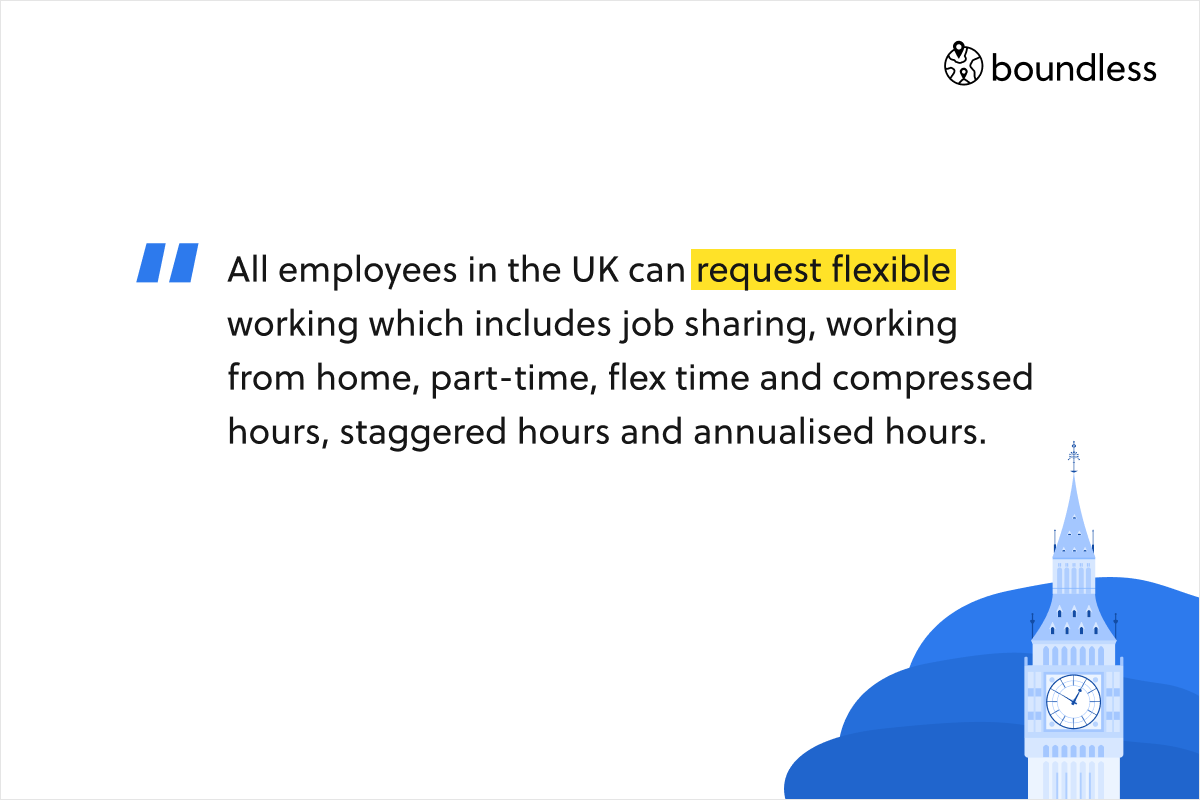
Employees in the UK have the right to a safe workplace, and it falls to their employers to take care of their health and safety while at work. Employers have to provide and maintain a safe place of work, a secure system of work, and safe-to-use equipment.
Employers are liable for negligent acts of their employees during their employment. They could also be responsible for specific occupational ailments if they are considered to have been aware of potential risks.
To ensure all of the above, the employer should:
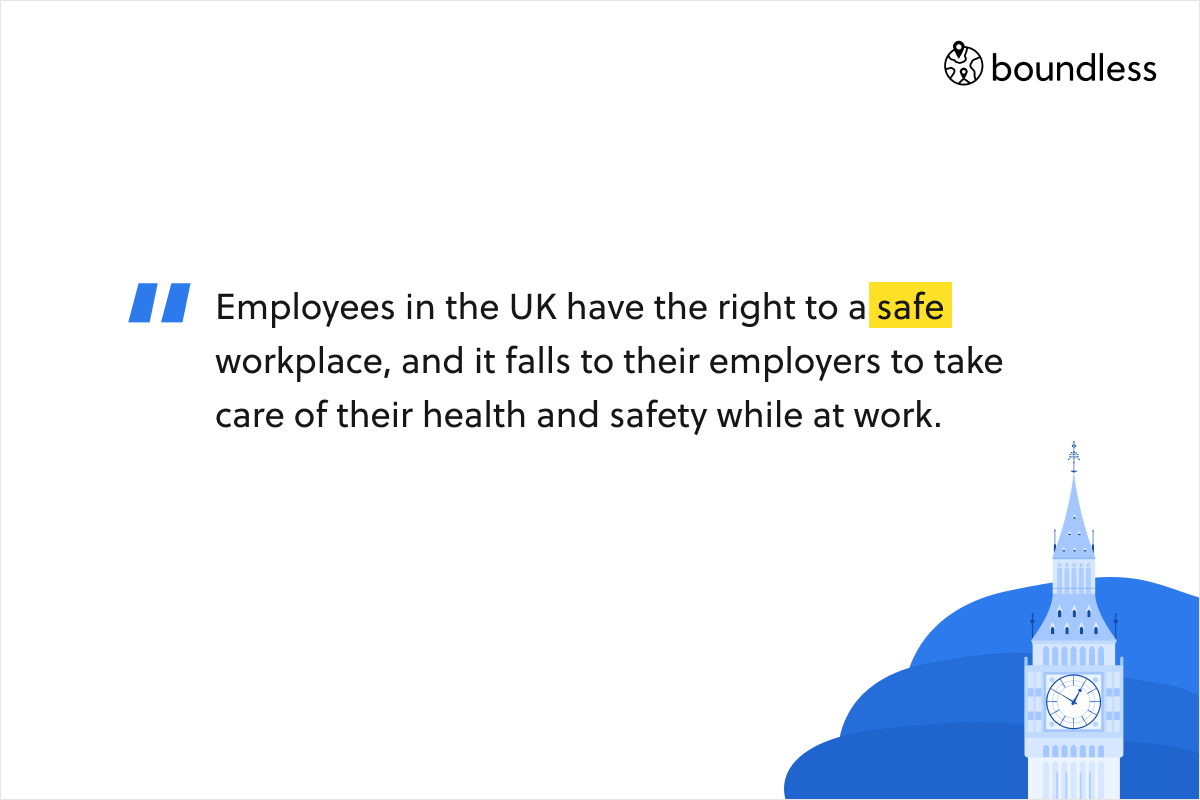
Further to this, employees are legally entitled to request an eye test if they feel the need for glasses and should be reimbursed for any costs incurred.
Employers carry the same responsibility to employees working remotely as they do to office-based workers. They have to make sure that remote employees have an adequate workspace with proper lighting levels, ventilation, room temperature, noise levels. The workstation should include a table, chair, laptop and a free, clean, safe space that meets the Safety & Health Regulations. Employers need to make sure employees’s setup includes:
While ergonomic consultations are not currently statutory, great UK employers provide this as a benefit to employees. You can see all statutory and voluntary benefits in the UK in this handy infographic.
Employers should mandate that their employees take short breaks during the day to avoid prolonged static postures. They should advise them to stretch and change their position regularly to help reduce tiredness and prevent pains in the body. Alongside those, employers should ensure adequate contact and communication with remote employees.
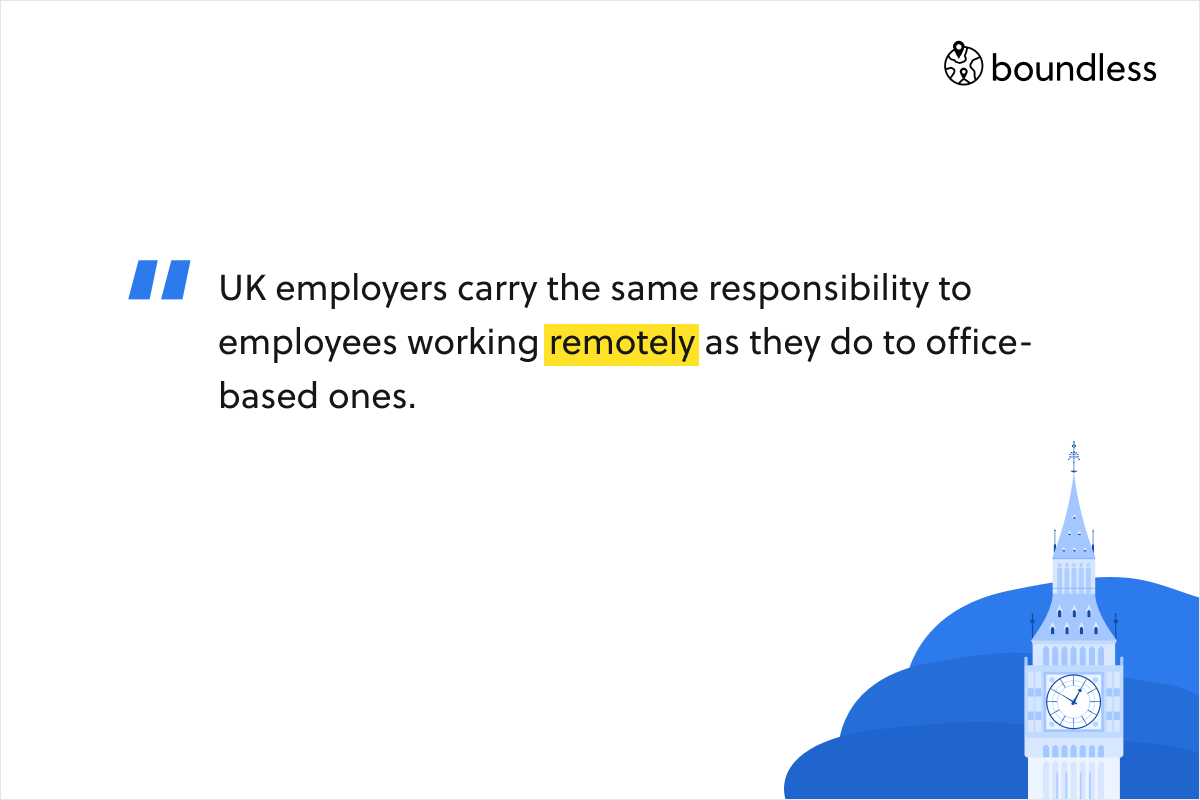
All of the above should be laid out in a work-from-home policy, which is accessible to everyone.
Employees in the UK are protected from workplace discrimination by the Equality Act 2010, which extends to dismissal, employment conditions, remuneration, career advancement and recruitment. This means that employers cannot fail to hire someone, select them for redundancy or pay them less than another employee based on gender, age or religion.
The Equality Act prohibits discrimination, harassment and victimisation based on age, disability, gender reassignment, marriage & civil partnership, pregnancy & maternity, race, religion & belief, sex and sexual orientation. Types of discrimination include direct or indirect harassment, victimisation and failure to make reasonable adjustments.
Whistleblowers in the UK who decide to disclose certain information are protected by the Public Interest Disclosure Act 1998 (PIDA). It gives them the right not to be penalised or dismissed because they made that disclosure, granted that they have a reasonable belief that the disclosure was made in the public interest.
A worker who is penalised in such circumstances can bring a claim for compensation regardless of the length of service. If an Employment Tribunal finds that an employee was dismissed because they made a protected disclosure, the dismissal will be deemed unfair, and the employer will need to compensate the worker.
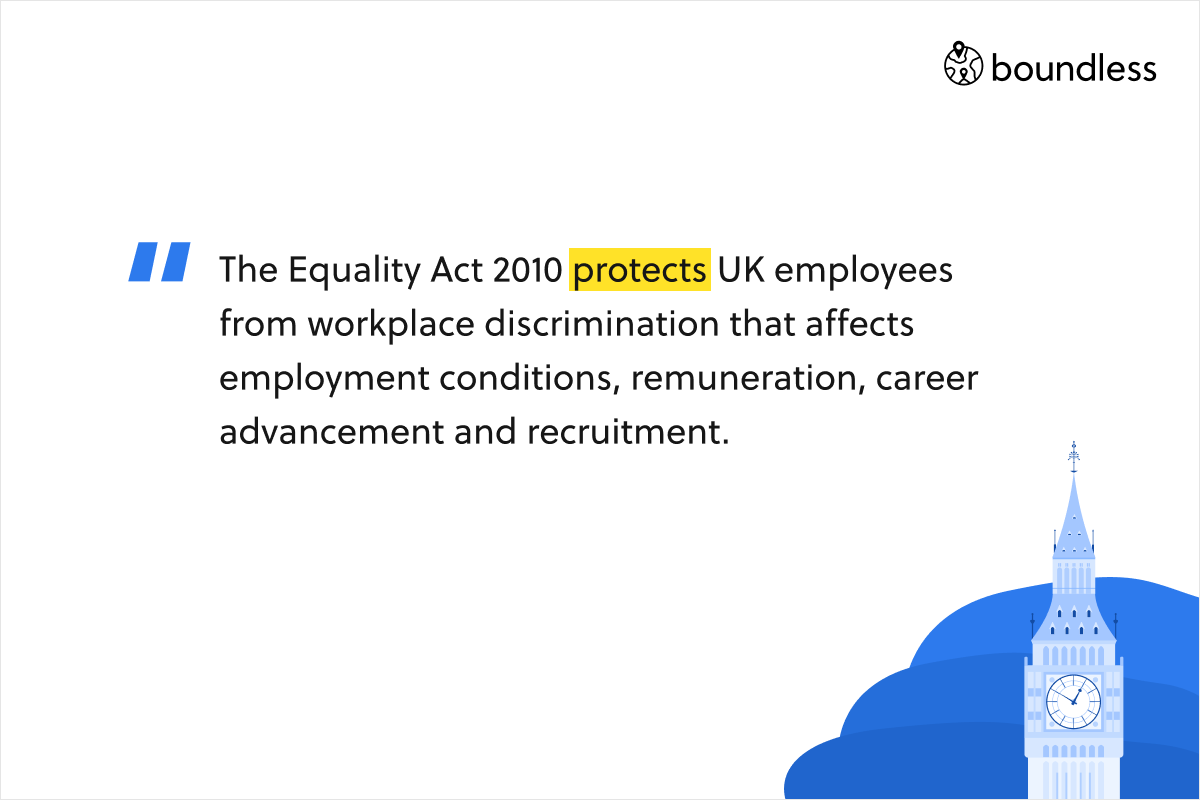
Employees who have been continuously employed by an employer for two years or more have a right not to be unfairly dismissed. According to UK employment law, there are five statutory reasons for dismissal:
Upon dismissal, the employer will have to prove that one of them applies and that they acted reasonably and fairly in treating the reason as sufficient to justify dismissal of the employee.
Even though the UK is planning to leave the EU, it still needs to comply with the General Data Protection Regulation (GDPR). GDPR protects employees' personal information, and employers must comply with it when processing their personal data. Under GDPR, employers must comply with the following principles when handling the personal data of employees:
If a personal data breach occurs, the employer must inform the Information Commissioner's Office (ICO) within 72 hours. If the risk for the wellbeing of the employee is high, they must also notify the individual concerned. Employees may lodge complaints to the ICO if they have concerns about an organisation's information rights practices.
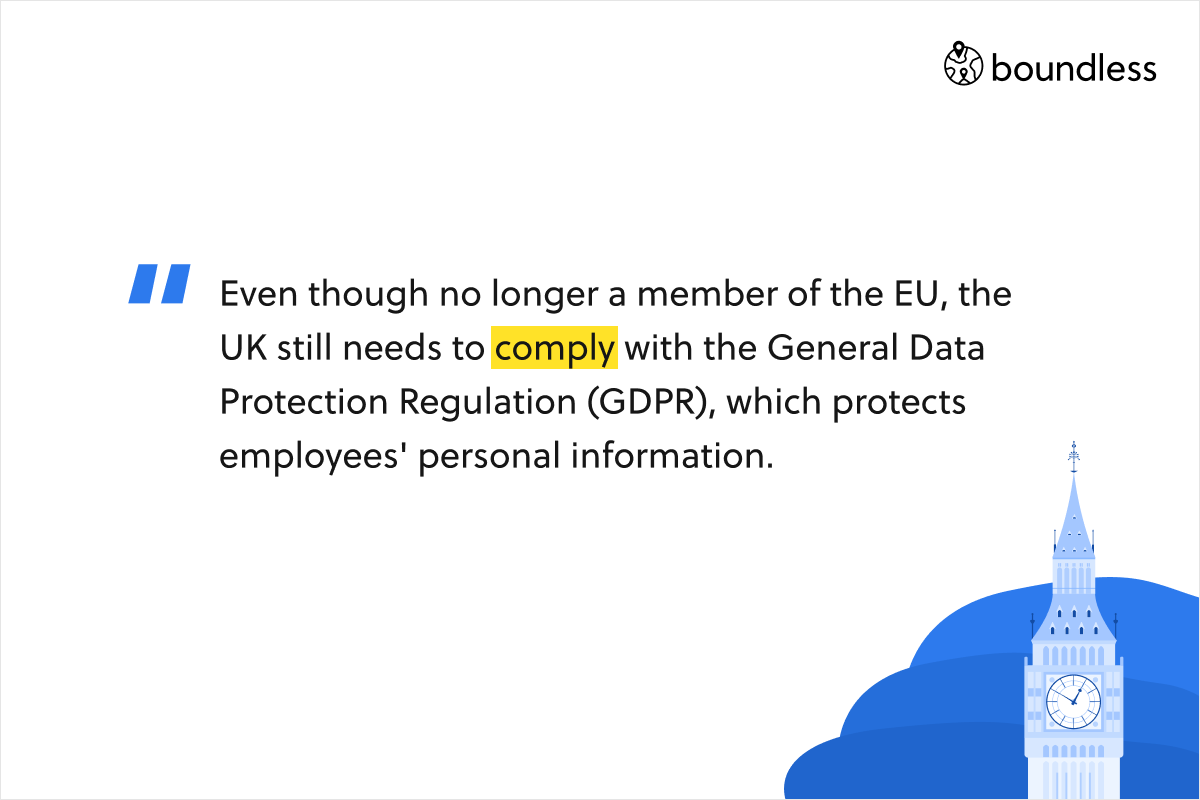
Under GDPR legislation, employees have the right to:
All employers in the UK have to provide a workplace pension scheme to employees, which comes on top of the state pension. While the employers cannot opt-out from providing it, employees can decide whether they want to join it or not. The only cases where an employer doesn't need to enrol employees in a pension scheme are:
After the employee has been enrolled into the workplace pension scheme, the employer must notify the employee about the date it commenced, the type of pension, which the provider is, and how to leave the scheme if they decide to do so. In addition, the employer should inform the employee how much they are contributing to the pension, how much the employee needs to participate, and how tax relief applies to them.
Since April 2019, employers' minimum contribution is 3%, employees' is 4%, and government tax relief is 1% for a total minimum contribution of 8%.
As employees change jobs, they can join a different workplace pension scheme, carry on making contributions to their old existing scheme, or combine the old and new pension schemes.
Employers have to automatically re-enrol an employee in the scheme every three years if they have previously left it. To do this, employers need to send a written statement to the employee informing them of that. After an employee has been re-enrolled, they can leave again.
Any employee who has been continuously employed for over two years has a right to receive a Statutory Redundancy Payment (SRP). They also have the right to receive a written statement setting out the amount of redundancy payment and how it was calculated. Redundancy pay is equal to:
The length of employment can be a maximum of 20 years, while the weekly pay is capped at £525. As for the maximum amount of statutory redundancy pay, it cannot be more than £15,750.
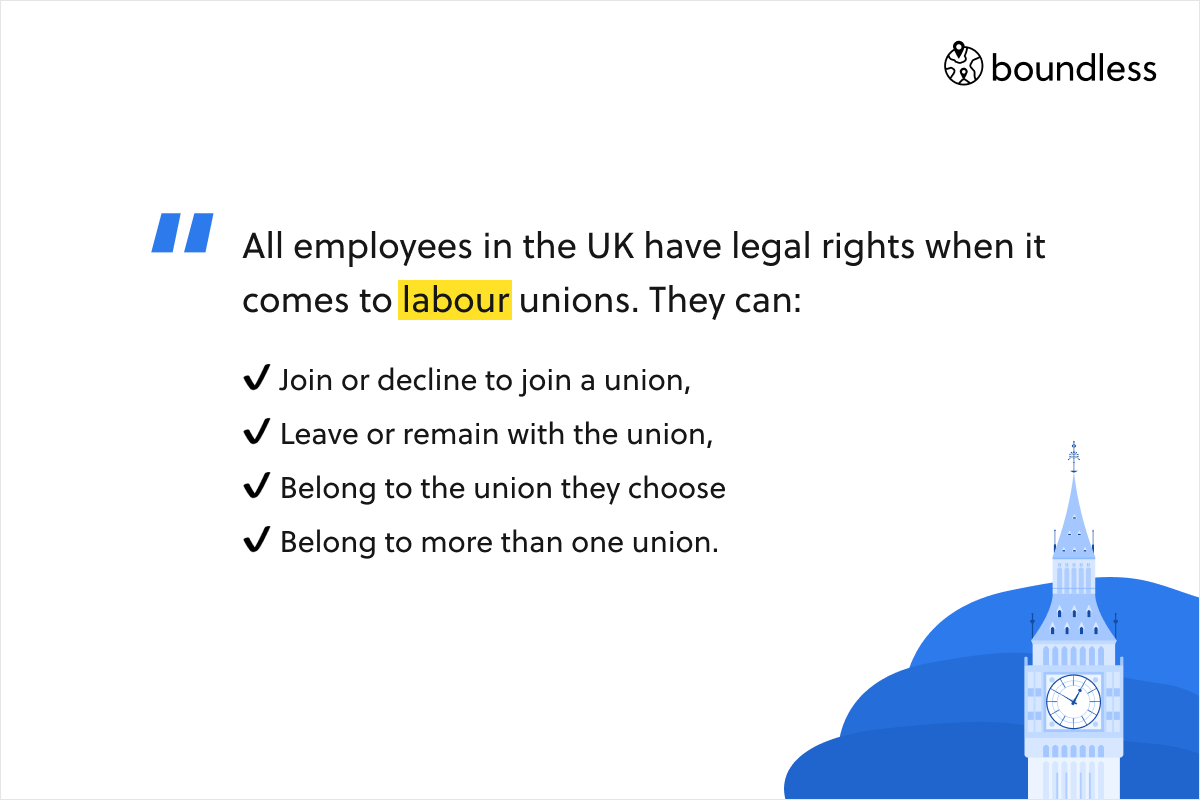
All employees in the UK have legal rights when it comes to labour unions. They can join or decline to join a union, leave or remain with the union, belong to the union they choose and belong to more than one union. The employer is not allowed to offer the employee a benefit for leaving the union, mistreat an employee if they don't leave a union, force an employee to join or leave one union over another. If employees believe that they're being mistreated because of the work union membership, they can bring the issue to an Employment Tribunal.
Adhering to employment law and employee rights in the UK will require a commitment to learning a lot of local regulations. We are here to help you on that journey and take the time to make sense of complex legislative information, which we turn into easy to understand resources and comprehensive country guides (check our guide to the UK).
You probably need to focus on other things for the business and staying on top of British employment law may not be a top priority. That doesn’t mean you should give up on employing your next remote worker out of the United Kingdom or hiring them as an independent contractor (it’s a really bad idea). Boundless can help you to employ them the right way. We own and operate a British Professional Employer Organisation as part of our multi-country offering, and through the Employer of Record model can act as the legal employer to your remote workers and take care of the duties expressed in this article. Learn more.
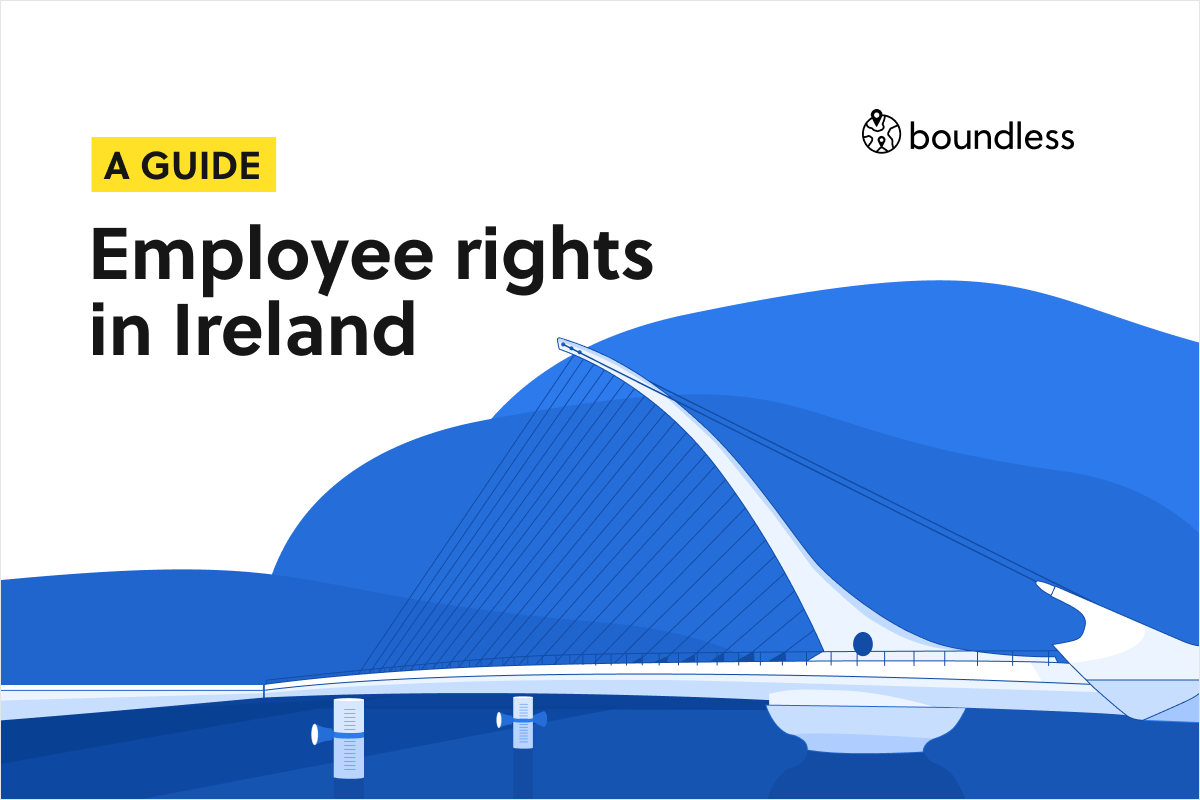
When an employer decides to legally and compliantly employ an internationally remote employee, one of the first things they need to come to terms with are the employee rights of their country. Here is a guide to employee rights in Ireland.

Considering employing someone in Brazil? One area you need to master is the local employee rights a worker residing there is entitled to. Here is a guide to employee rights in Brazil to help you understand what you need to comply with.

In some countries, the Employer of Record model is not aligned with local employment legislation, which may restrict outsourcing of employment. To understand why Spain is a country we cannot currently support, it’s worth understanding how we operate in other countries.

Considering employing someone in Croatia? To do that compliantly, an employer has a lot of obligations they have to fulfil. One comprehensive and important topic is the set of local employee rights a worker residing in Croatia is entitled to.
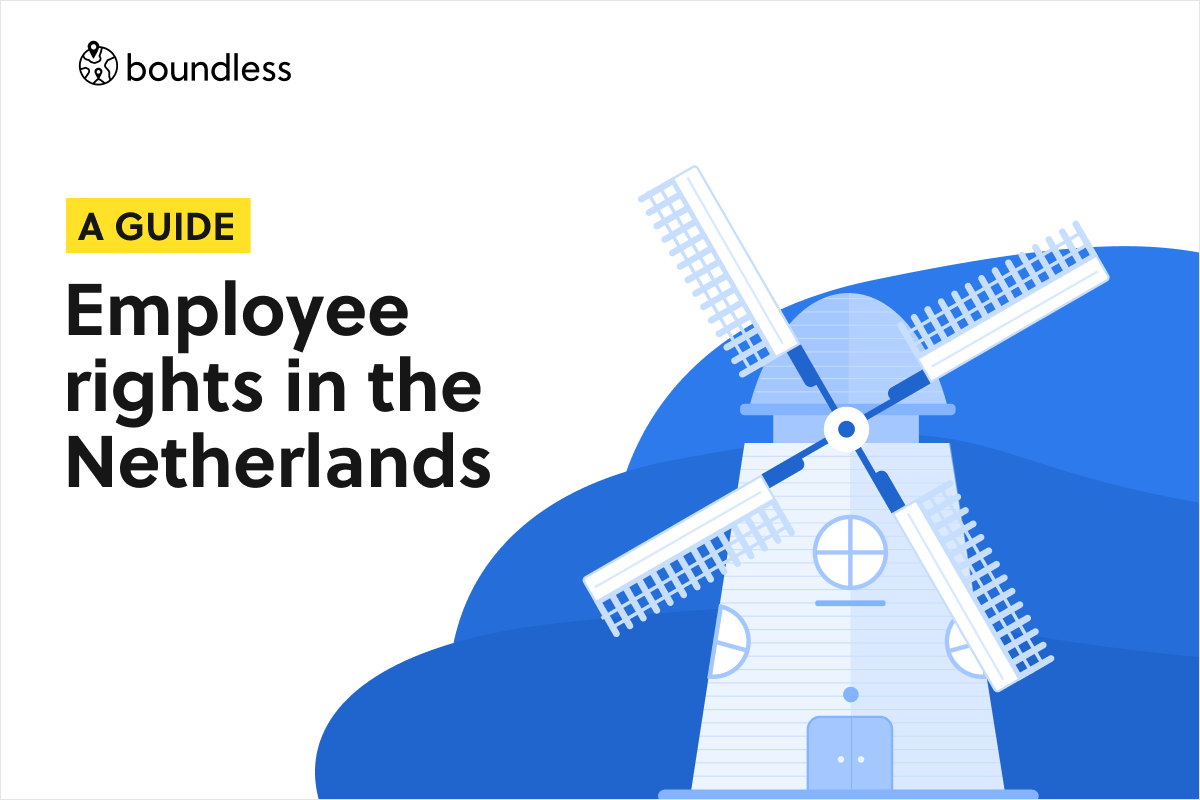
Considering employing someone in The Netherlands? To do that compliantly, an employer has a lot of obligations they have to fulfil. One comprehensive and important topic is the set of local employee rights a remote worker in The Netherlands is entitled to.
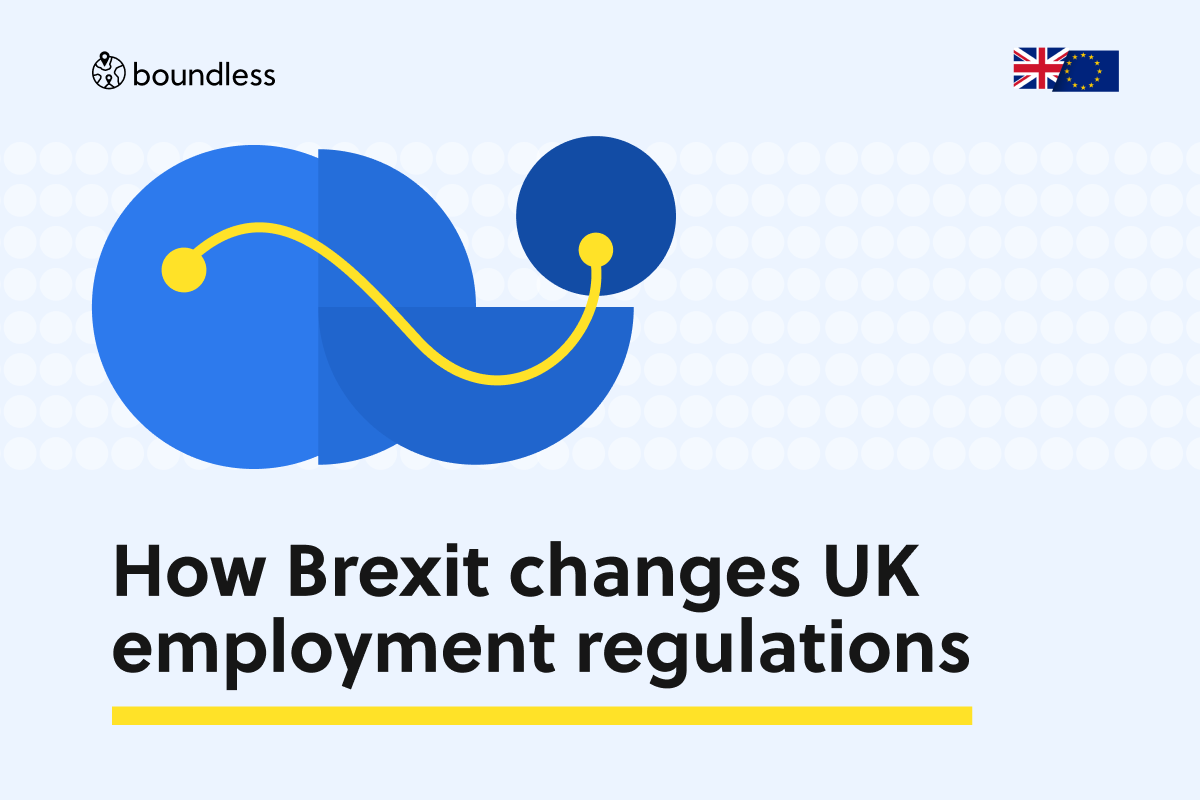
It’s been a while since the UK officially exited the EU. While many aspects of Brexit are better understood now, we have a way to go to grasp all the details. One crucial topic to many companies with UK-based employees or those employing UK nationals abroad is how Brexit impacts employment.